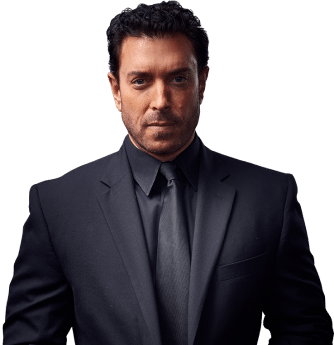
How to Handle Insurance Adjusters After an Accident
Being in a car accident is overwhelming enough, but dealing with insurance companies and their tactics afterwards can raise stress levels even higher. Adjusters can sound helpful and empathetic on the phone, but they are not your friend and do not want to help you. Their job is to protect their company’s profits, not make sure you get the compensation you deserve.
Knowing how to handle insurance adjusters after an accident starts with understanding their motives, their tactics, and what they expect when they reach out to you.
Understanding Your Rights When Dealing with Insurance Adjusters
Insurance adjusters have a ton of experience fighting to minimize payouts to car accident victims, and they can easily trip you up if you’re not careful. That’s why it’s crucial for you to know your rights when dealing with them. Here’s what you need to know:
- You are not obligated to speak to the at-fault driver’s insurer
- You don’t have to accept the first offer
- You can (and should) refuse to prove a recorded statement
- You have the right to legal representation at any time
It’s safe to assume that any question or request from an adjuster is an attempt to weaken your claim. Approach every conversation cautiously and avoid speaking with them before seeking legal advice.
What an Insurance Claims Adjuster Is (and Why They’re Not on Your Side)
So, what is an adjuster in insurance exactly, and why should you be cautious when dealing with them after a car accident?
An insurance claims adjuster evaluates accident claims and determines how much the insurance company should pay. There are three main types of adjusters:
- Staff Adjusters –Employees of the insurance company who handle routine claims, conduct investigations, evaluate damages, and negotiate settlements.
- Independent Adjusters – Contractors hired by the insurer, sometimes for their specialized expertise or familiarity with a region, but also during times of high claim volume.
- Public Adjusters – Hired by policyholders, most often for property damage, not personal injury claims.
When an adjuster works for the insurance company, that means their job is to protect the company’s bottom line. To do that, they’ll find any reason to deny, delay, or reduce your claim. That is always the case, no matter how friendly, innocent, or helpful they seem.
Smart Steps to Take Before Talking to Any Adjuster
Before speaking to any insurance adjuster, whether they’re from your own insurer or the other driver’s, be sure to do the following:
- Seek Medical Attention –A lack of medical records opens the door for adjusters to claim you didn’t take the accident seriously, your injuries are not connected to it, and they don’t owe you anything. See a healthcare provider as soon as possible.
- Gather Evidence – Collect accident scene photos and videos, police reports, witness statements, medical records, and anything else that establishes the other party’s liability.
- Keep All Receipts –Prove how much the accident and your injuries have cost you by maintaining an organized file of all bills, invoices, receipts, evidence of lost wages, and any other relevant financial documents.
- Understand Your Policy – If you’re not well-versed in the language of your policy, the adjuster will take advantage of that fact. Read it over carefully.
What Not to Say to Insurance Adjusters
Knowing what not to say to insurance adjusters is just as important as knowing what to say to them. Adjusters are trained to ask casual-sounding questions designed to weaken your claim. To avoid falling into that trap, keep the following in mind:
Don’t Admit Fault
It’s natural to feel the urge to apologize after an accident, but you should avoid it at all costs. You don’t have the information necessary to determine fault, and accepting blame will be used against you when seeking compensation.
Don’t Downplay Pain or Injury
Some injuries don’t present themselves for hours, days, maybe even weeks after the accident. Claiming you’re not hurt may be factually inaccurate and will be used to minimize your payout.
Don’t Offer Recorded Statements
You’re not legally required to provide a recorded statement to any insurance company, and you have nothing to gain from doing so. Meanwhile, they can edit your statements or lead you into saying things to use against you in negotiations.
Recognizing Adjuster Tactics and Your Right to Push Back
Knowing how to talk to insurance claims adjusters is crucial, but if you really want to handle them effectively, you also need to know the tactics they employ to protect their profits. Look out for the following red flags:
- Lowball Settlement Offers –The moment you accept an offer, you’ve likely waived your right to seek further compensation. Never accept any quick settlements.
- Delaying Communication –When adjusters are slow to communicate, they’re hoping you’ll fold out of frustration or financial pressure, and potentially miss your deadline for filing a lawsuit.
- Asking Leading Questions –Adjusters will ask questions that encourage statements that might weaken your claim. For example, “Your injuries aren’t that bad, right?” downplays your injuries and asks you to agree.
- Cherry-Picking Medical Records –Gaps in medical care or old injuries are often used to cast doubt on the origin, extent, and legitimacy of new injuries.
When to Hire a Personal Injury Attorney
You may be aware of the many insurance adjuster tricks you might encounter, but that doesn’t necessarily mean you’re prepared to handle them in real time. A skilled attorney knows exactly what to say to insurance adjusters and can handle all communications with them for you.
Here are some signs that you need legal help after an accident:
- You’re blamed for an accident that wasn’t your fault
- Insurance companies are offering lowball settlements
- Your injuries are long-term or severe
- The insurance company is denying or delaying your claim
- You’re being asked to sign things you don’t fully understand
- You feel pressured, confused, or overwhelmed
Your attorney knows all the insurance adjuster tricks, how to counter them, and how to gather the evidence needed to build a compelling case. They’ll protect you from insurance company intimidation tactics and fight for maximum compensation on your behalf.
Contact a Personal Injury Attorney Today
If you’ve suffered injuries in an accident caused by someone else’s negligence, you need an experienced personal injury attorney to protect your rights. The team at The Scott Pryor Law Group will take on the insurance adjusters so you don’t have to. Contact us today for your free consultation.
Photo by Scott Greer on Unsplash










